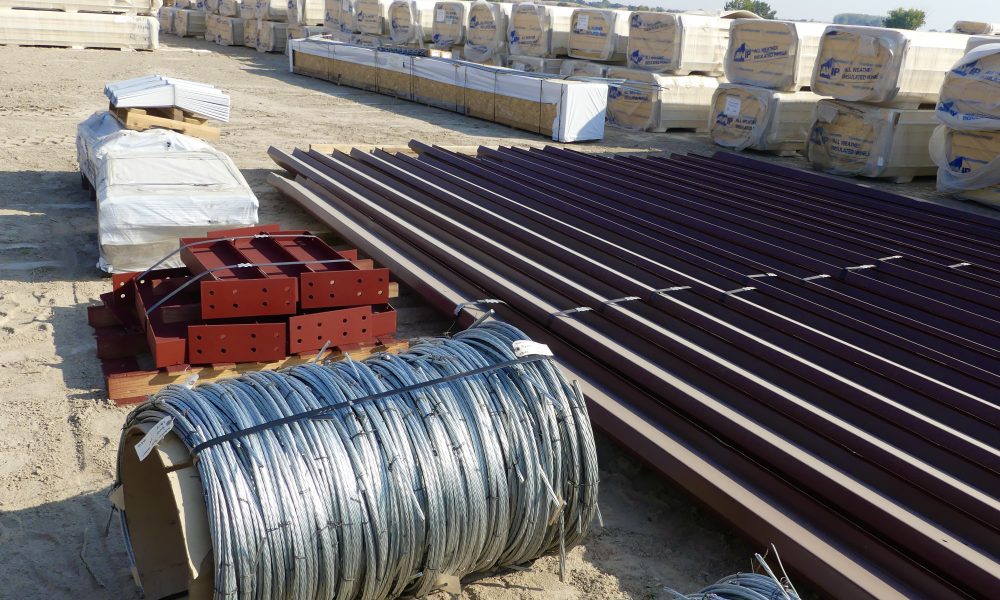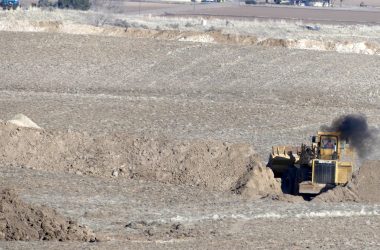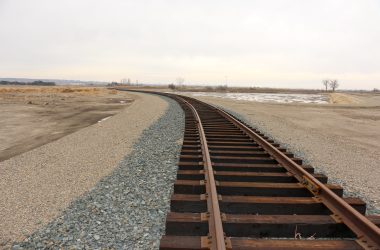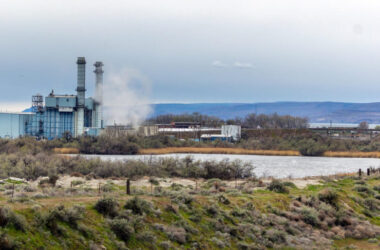NYSSA – Managers of the Treasure Valley Reload Center are poised to move ahead on a plan to award a Washington company without bidding a contract to build the foundation and slab for a warehouse and office building.
A public hearing to allow such contracting is scheduled in Nyssa at 10 a.m. Tuesday, Oct. 25, at the Waldo Conference Center. Project leaders had provided no notice in Malheur County until questioned about the proceeding by the Enterprise.
Anderson Perry & Associates, the firm assigned to complete the engineering work on the project, is arranging for Nelson Construction Corp. of Walla Walla to complete the work for $1.7 million. The money is from an emergency funding grant from the state approved in September.
The rail project is overseen by the Malheur County Development Corp., a public company established by the Malheur County Court.
The public hearing is required to allow the development company to skip the bidding process.
A no-bid contract is used by the government in limited circumstances to sidestep bidding and negotiate directly with a vendor. Generally, the state adheres to a process of competitive bids for major projects.
However, exceptions can be made if a no-bid contract is not expected to encourage favoritism or diminish competition.
Those two reasons are key points in a four-page “Findings of Fact” crafted by Yturri Rose the Ontario law firm that represents the development corporation. The direct bid will mean “substantial cost savings to MCDC” and speed up completion of the project, especially before winter hits.
The findings also assert the no-contract bid is necessary because of a “lack of interest from contractors available and qualified to bid on the TVRC building project.”
The development corporation included the foundation work as part of an overall bid for the entire building issued in April. TCG Construction of Meridian was the sole bidder with a price of nearly $7 million, nearly double the budget.
TCG’s bid priced the concrete work at $3 million, later negotiated to $2.5 million. Project leaders decided to reject the bid entirely.
Since then, project leaders have not sought new bids for the entire building or for just the concrete work. They instead offered the work to Nelson Construction.
According to the findings, striking a deal with Nelson Construction would save $800,000 over last April’s bid. Brad Baird, Anderson Perry’s president, has said the price from Nelson Construction was a verbal offer, not in writing.
“It is highly unlikely any competitive bidding process is likely to generate additional interest,” according to the findings.
The findings said the special contract was needed to allow the to work proceed before freezing weather.
And the findings said giving Nelson the work “will result in the project being completed either on time or close to on schedule.”
The most recent estimate shows the reload center being finished in April. The findings don’t disclose that completion is only possible if the development company can obtain an additional $6 million.
The no-bid process requires that the public be given two weeks’ notice of a hearing where citizens can comment on the process. That notice was first published Oct. 7 in the Portland-based Daily Journal of Commerce.
Grant Kitamura, president of the development company, said “the board did not put out that notice. It was put out by the project manager, Anderson and Perry.”
He said “you are asking the wrong guy” when questioned about where people could review the findings justifying the no-bid approach. “How would I know? I have never done stuff like this before,” referring a reporter to Baird.
Baird didn’t respond to written questions about the matter but within hours the notice and the findings of fact appeared on the development company’s Facebook page.
The reload center is designed so onion producers can truck their produce to the site north of Nyssa for loading onto rail cars for shipment to destinations in the Midwest and East.
The majority of the funding for the project comes from a $26 million outlay approved by the Oregon Legislature in 2017, and two $3 million special appropriations, one in 2021 and a second one September.
Recently, the development corporation opened bids to put in gravel streets for the project but doesn’t have the money to cover the $1.1 million price for the work.
The gravel work may prove crucial once the corporation moves forward on foundation and slap work because without gravel the existing dirt roads may not be able to handle the loads of concrete trucks moving into and out of the project site, according to Baird.
The rail project has faced numerous delays and budget overruns since construction began a year ago. In an April press release dismissing concerns about the project, the development company board said, “We look forward to a grand opening later in 2022!”
There is no new grand opening date scheduled.
News tip? Contact reporter Pat Caldwell at [email protected]
EXCELLENCE IN JOURNALISM – Available for $7.50 a month. Subscribe to the digital service of the Enterprise and get the very best in local journalism. We report with care, attention to accuracy, and an unwavering devotion to fairness. Get the kind of news you’ve been looking for – day in and day out from the Enterprise.




